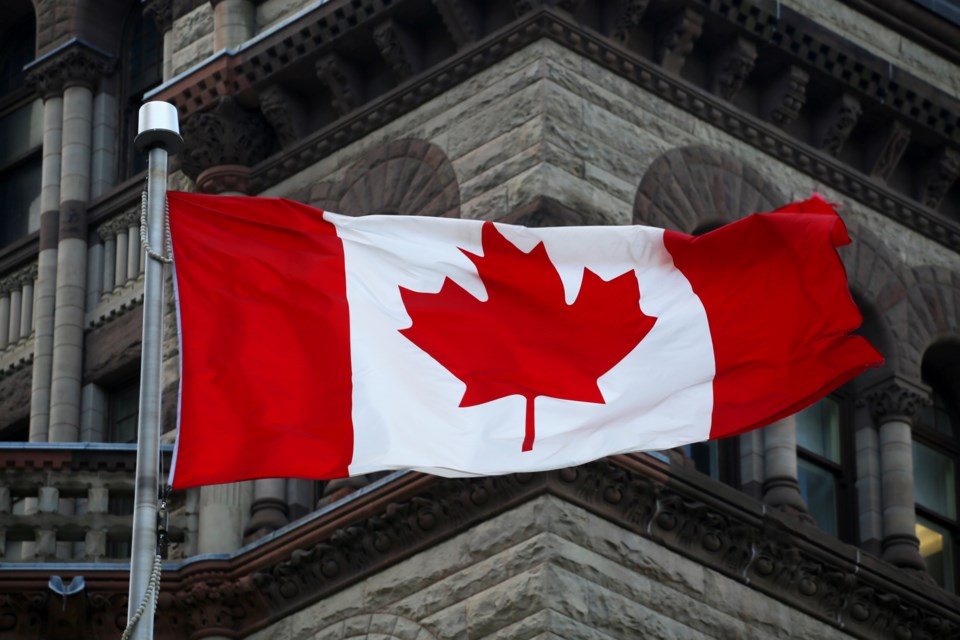Warning: This story contains details that may be distressing to some readers.
Terrorism isn't generally something Canadians think of as happening at home. It's usually somewhere else, something we see on TV.
However, the 1970 murder of Quebec cabinet minister Pierre Laporte came immediately after for the first time in Canadian history.
The act suspended civil liberties in Canada, allowing the federal government to hunt domestic terrorists.
When asked in an interview how far Trudeau would go to combat domestic terrorism, he pulled no punches. "Just watch me," he said.
Thousands of troops were sent into the streets of Quebec, with officers storming homes and hundreds of citizens arrested and detained without charges.
Trudeau's move gave police power of search and arrest without warrant. It allowed detention and interrogation of suspects without access to lawyers for a minimum of seven days and up to three weeks if charges were pending.
But let's backtrack.
Laporte was snatched from his front yard, where he was playing football with his nephew, and shoved into a vehicle at gunpoint by members of the — or FLQ, on Oct. 10, 1970. Thus started The October Crisis.
Five days earlier, the FLQ had kidnapped British diplomat . He was later released unharmed.
"The gun pointed at their heads have FLQ fingers on the trigger," said Trudeau at the time. "Should any injury result, there is no explanation that could condone the act. Should there be harm done to these men, the government promises unceasing pursuit of those responsible."
Quebec's Quiet Revolution
To understand Laporte's murder, it's necessary to go back a few years.
Quebec was undergoing what was called the quiet revolution. Politics had changed, minorities were advocating for change. And, many Quebecois wanted to be 'maitres chez nous" – masters in our own house.
Indeed, the Parti Liberal du Quebec, led by premier Jean Lesage, campaigned under the slogan.
It was a sentiment that created the separatist Parti Quebecois under later-premier Rene Levesque and spawned the federal Bloc Quebecois, which holds seats in Canada's parliament even today.
But, a more radical element wanted a revolutionary movement to create a socialist Quebec nation. Chief among them was the FLQ, who was inspired by Communist ideologist Karl Marx, Russian Communist revolution leader Lenin and Cuban revolutionary darling Che Guevara.
The FLQ became involved in dozens of bombings between 1963 and 1969, targeting radio stations, businesses, government buildings, diplomatic buildings and military sites.
One bomb in 1963 targeted the train of Prime Minister John Diefenbaker.
"Is this Ireland?" he exclaimed on hearing of the bomb, invoking the Irish Republican Army's guerrilla war against British rule.
The terrorism led to the involvement of the FBI and the Pentagon, with investigations into "revolutionary activities" in Quebec.
Terrorism in the western world
By 1970, police were looking at the FLQ.
That February, two members were arrested. After their release, police determined they had planned to kidnap an Israeli diplomat.
Meanwhile, bombings continued in Montreal and Ottawa. It was a situation the western world had seen little of before.
It preceded the better-known terrorist activities of the Red Brigades in Italy, the Red Army Faction in Germany – also known as the Baader–Meinhof Gang — and the Weather Underground in the United States. And indeed, the world soon heard more about the Palestinian terrorist group Black September, which took 11 Israeli Olympic team members hostage and killed them along with a West German police officer at the 1972 Munich, West Germany Olympics.
Still, Canada was subject to the ravages of terrorism before those better-known events.
As the Quebec bombings continued, Cross was kidnapped, and the FLQ demanded its manifesto be published or read on air.
Future Parti Quebecois premier Rene Levesque published an article in Journal de Montréal suggesting the FLQ abandon violence. A day earlier, Le Devoir newspaper editor Claude Ryan, a future provincial Liberal cabinet minister, suggested the government negotiate.
When the FLQ kidnapped Laporte, letters were sent to his wife and future Liberal premier Robert Bourassa saying he was being treated well. But on Oct. 17, seven days after he went missing, his body was found in the trunk of a 1968 Chevy Biscayne at Montreal's Saint-Hubert Longueuil Airport.
He had been strangled.
Police freed Cross on Dec. 3, and 25 days later, Laporte's kidnappers were arrested. They served prison terms ranging from 20 years to life.
National security: from the RCMP to CSIS
The kidnappings, Laporte's death and the terrorism which preceded them had long-term consequences. Among them was the RCMP's realization that more could have been done to prevent the crisis. In response, the RCMP Security Service was created.
What happened next was almost accidental.
A former RCMP member on trial for bombing a private residence testified he had done much worse for the security service. And that led the federal McDonald Commission to look at allegations against the RCMP. Those allegations included break-ins, illegal mail opening mail, stealing a Parti Quebecois membership list, illegal electronic surveillance and burning a Quebec barn where members of the FLQ and the U.S. Black Panther Party were rumoured to be meeting.
The commission found the RCMP lacked guidance and said a national security agency's role should be to "secure democracy against both its internal and external enemies without destroying democracy in the process."
So, later that year — as one of his last acts as prime minister — Trudeau created the Canadian Security Intelligence Service (CSIS).
In 2015, Prime Minister Stephen Harper's government pushed the security agency further from the MacDonald commission's conception with its Anti-Terrorism Act, which allowed CSIS to take direct action to disrupt threats on the caveat it does not cause harm, death, or injury. It also allowed CSIS to contravene the Charter of Rights and Freedoms and Canadian law if authorized by a federal court judge.
In 2019, more changes were made to the act under Prime Minister Justin Trudeau.
Those changes include constraints on CSIS' activities, including prohibiting torture and detention and requiring the security agency to act consistently within the charter. The law also now amplifies what constitutes civil dissent and artistic expression, and made changes to how terrorism and terrorist propaganda are defined.




